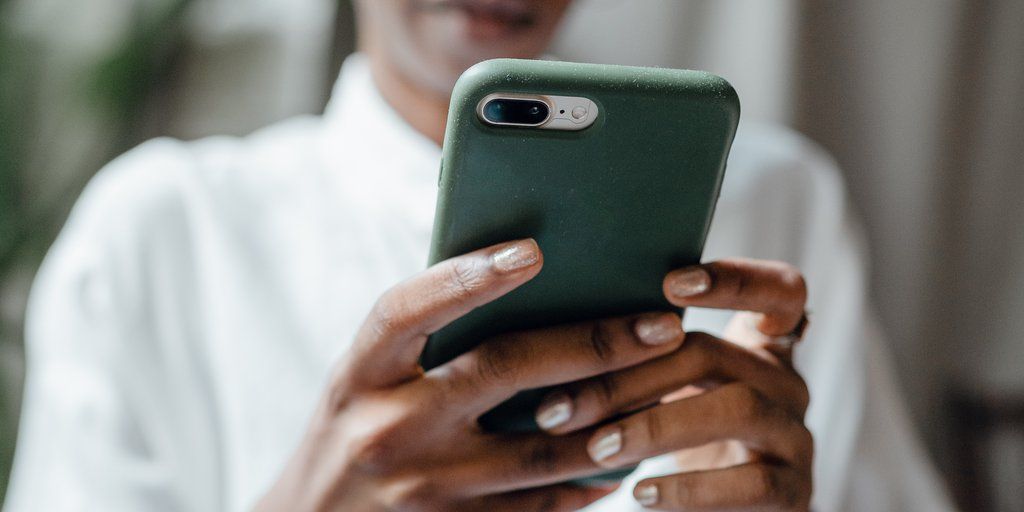
Digital Decibels: Can Phones Really Discern Our Preferences Without Intent?

Key Takeaways
- Users have experienced personalized ads for topics they have discussed, leading them to believe their phones are listening to their conversations.
- While it’s difficult to prove that smartphones are collecting data to target ads, there is anecdotal evidence supporting this claim.
- Companies like Google and Facebook deny using smartphone microphones to gather information for targeted ads, but location and proximity to other devices may play a role in personalized ads.
Ever wondered if your phone is listening to your conversations? Spotted personalized ads for TV shows, movies, or objects that you know you haven’t searched for?
What is going on?
Let’s consider the evidence and try to work out. Is your phone listening to you for ads, or is it simply a good, old-fashioned, coincidence?
Various users across the web have claimed that something fishy is going on with their phones.
They believe that smartphone microphones are being used to record what they say, with the information used to better target personalized Google ads on websites and Facebook.
It sounds unlikely, but the anecdotal evidence is quite compelling. BBC Technology Report Zoe Kleinman reports an occasion when she learned of a friend’s death in tragic circumstances, only to find that her friend’s name, the accident, location, and year were in the Google search box on her phone.
Common search terms for this subject on Google include things like: “does iphone listen to you for ads,” “can my phone hear me,” and “is google listening to my conversations?”
Various Reddit threads considering the question “do our phones listen to us for ad targeting” (and similar) have prompted individual experiences, such as this from BasedBrexitBroker :
“The other day I went to a Mexican Paisa bar. Inside everyone was speaking Spanish and a mariachi band was playing. For 48 hours after this all my instagram, soundcloud and twitter ads were in Spanish.”
Here’s another, from Redditor karlrocks23 :
“My SO and I were having a chat and I was telling her about a new Nespresso shop that opened up in the city and how nicely designed it was. I don’t like coffee that much, and I’ve never even tried Nespresso. That is the only time I can remember having a conversation about Nespresso to anyone and I’ve certainly never Googled it or anything.
The next day, all my ads on chrome were about Nespresso.. I have no issues with ads popping up related to things I’ve searched by voice or type. But it did feel a bit invasive being constantly listened to and for private conversations to be used as a means to target ads at me.”
You’ll find many similar stories on Reddit and beyond. Check this account of a user noticing Google ads for everything he discussed with his wife for more.
Since this happened, Google no longer offers this sort of recommendation. However, the possibility of technology being used to target customers based on their conversations is concerning. Often, the data recorded can be used to identify you.
In 2019, 1000 Google Assistant-harvested voice recordings were leaked to Belgium media outlet VRT News . The recordings–many of which will have been collected from Android phones–included enough information to identify the device owners.
“In these recordings we could clearly hear addresses and other sensitive information,” they reported. “This made it easy for us to find the people involved and confront them with the audio recordings.
Google reacted to this by taking action,stating : “Audio snippets are not associated with user accounts.” But as VRT pointed out, they don’t need to be. More recently, I was brushing my teeth while reading an article about a movie when this advert appeared.

Did my phone hear the sound of my electric toothbrush and match it to an ad?
Consequently, ensuring your Android permissions don’t give apps access to your phone’s mic is a good idea. Does Google listen to your conversations for ads? Probably not, but if you’re concerned you should “de-Google” your life entirely.
It doesseem as though this is something more than coincidence. After all, proving that smartphone mics are collecting data to target content to users is tricky. But as we know that phones and digital assistants are listening, is it really a surprise that companies like Google, Amazon, and Facebook should be interested in what you’re saying?
Could apps capture audio data using your smartphone’s microphone? To find out, cybersecurity experts Ken Munro and David Lodge from Pen Test Partners developed an app. Its aim is to record what was being said in the vicinity of a phone and display it on a monitor.
As Munro explained to the BBC , “All we did was use the existing functionality of Google Android—we chose it because it was a little easier for us to develop in.”
“We gave ourselves permission to use the microphone on the phone, set up a listening server on the internet, and everything that microphone heard on that phone, wherever it was in the world, came to us and we could then have sent back customized ads.”

David Lodge explained that the code was largely available within the host OS or in the public domain. The experiment was achieved with minimal battery drain on the device.
Meanwhile, data protection expert Mariano delli Santi told the Guardian that companies use other information to bid for and then target ads. This can result in things your partner or housemate searched for turning up as ads on your device. “…data that links you […] such as geolocation, or if you’ve given the same address when shopping online.”
Do Phones Listen to You? Companies Say “No”
Google and Facebook have both denied that their apps can use smartphone microphones to gather information in this way.
Facebook told the BBC that it blocks brands from advertising based on microphone data. Google is not listening you, so it claims, stating “categorically” that it does not use any “utterances” from when your chosen hotword is used, or share them with third parties.
Additionally, app developers must adhere to the Google developer policy . This specifies that apps do not breach privacy by using recordings from Google Assistant.
It’s a compelling argument. Despite that feeling that our conversations are being used to target ads, it is nothing to do with chat, and more to do with location, and proximity to other devices where discussions have lead to searches.
For example, I compiled a wide list of discussion points to have within distance of my phone over the course of a week. None of the topics could be Googled or researched in any other way.
- Cookware
- Aquaponics
- Rugby league
- Soviet poets
- Bill Paxton
- Basements
- Hannah Waddingham
- Spooky Tooth
- Botulism
Surprisingly, not a single topic appeared as adverts, neither as pop-ups nor as inbox spam. There was no Google News feed item, and nothing on any linked devices.
We know that Google does record you, just as we know that Amazon does, via the Amazon Echo. But is the information is used for commercial purposes?
Probably not. Enhancements in mobile device privacy seem to have put an end to this sort of privacy breach. If you’re using a recent mobile operating system, it’s unlikely that you’ll be affected by this.
So, what is happening? Well, it’s probably simply a case of linked profiles across various devices syncing to show you adverts about things you’re interested in, or have previously viewed, or received emails about. So, while advertising data is gathered from phones, it isn’t from voice conversations… yet.
This is somewhat unnerving, but makes more sense than audio surveillance treating you to targeted adverts.
Whatever you believe, inspect your device permissions to ensure apps don’t have access to your microphone without good reason.
- Title: Digital Decibels: Can Phones Really Discern Our Preferences Without Intent?
- Author: Michael
- Created at : 2024-09-05 09:23:01
- Updated at : 2024-09-06 09:23:01
- Link: https://facebook.techidaily.com/digital-decibels-can-phones-really-discern-our-preferences-without-intent/
- License: This work is licensed under CC BY-NC-SA 4.0.